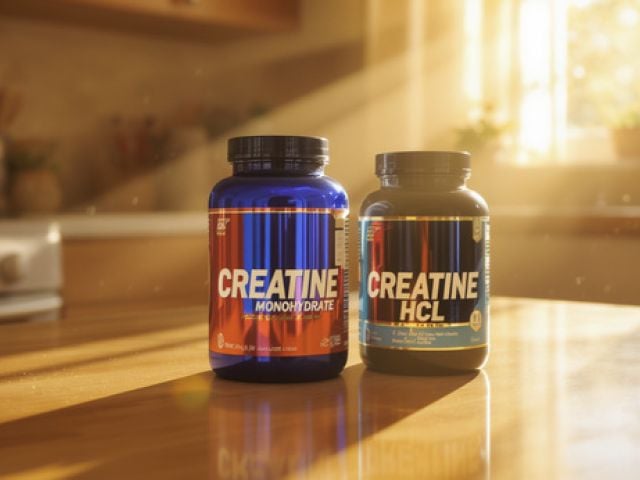
Is Ginger Worth Adding to Your Weight Loss Plan?
Ginger’s been around for thousands of years as a natural remedy. Lately, research hints it could help with weight management, which makes a lot of folks wonder if this spicy root really moves the needle on the scale.
Studies show ginger supplementation can lead to small but measurable decreases in body weight. One study found 2 grams daily for 12 weeks reduced body weight and waist measurements1.
This spice works by boosting metabolism, curbing appetite, and helping your body burn fat a bit more efficiently. It’s not a magic fix, but ginger might be a solid addition to a healthy diet and exercise plan if you use it right.
Key Takeaways
- Ginger can produce modest weight loss results when taken consistently as part of a healthy lifestyle.
- The spice works by increasing metabolism, reducing appetite, and supporting fat burning processes.
- Combining ginger with a healthy diet and exercise gives you the best chance for sustainable weight loss.
How Ginger Supports Weight Loss
Ginger contains active compounds that support weight management in a few ways. These compounds can boost your metabolism, ramp up heat production, and help control your appetite naturally.
Active Compounds: Gingerol and Shogaol
Gingerol is the main bioactive compound in fresh ginger root. It’s what gives ginger its signature spicy kick and delivers most of its weight loss perks.
When you cook or dry ginger, gingerol turns into shogaol, which is even more potent for weight management.
Studies suggest gingerols and shogaols affect energy metabolism in your body2. These compounds help break down stored body fat more efficiently.
The concentration of these actives depends on how you prep your ginger. Fresh ginger has more gingerol, while dried powder packs in more shogaol.
Both work together, targeting different pathways in your body to help reduce fat and boost metabolism. That’s a pretty neat tag team.
Effects on Metabolism and Thermogenesis
Ginger can increase your metabolic rate through thermogenesis. Basically, your body burns more calories—even when you’re just sitting around.
Research shows ginger consumption enhances the thermic effect of food in overweight men3. When you eat ginger, your body uses more energy to digest and process meals.
Animal studies have also shown ginger prevents obesity through regulation of energy metabolism2. It activates brown fat tissue, which burns calories to generate heat.
This thermogenic effect helps you burn a few extra calories throughout the day. You might even notice your body feeling a touch warmer after eating ginger.
The metabolic boost from ginger can help reduce belly fat over time, especially if you pair it with a healthy diet and regular exercise.
Appetite Suppression and Satiety
Ginger acts as a natural appetite suppressant by affecting hormones that control hunger. You might notice you feel full sooner and stay satisfied longer after meals.
Some studies indicate ginger extract can decrease food intake when used as a supplement4. That means you could end up eating fewer calories without really trying.
The spice increases feelings of satiety by slowing down how fast your stomach empties. Meals stick around longer, so you stay full for a while.
Ginger may also help keep blood sugar levels steady after eating. Stable blood sugar means fewer sudden hunger spikes and less temptation to reach for junk food.
If you take ginger before meals, you might find yourself naturally eating smaller portions. This kind of appetite control supports long-term weight management without harsh diets.
Join Our 50,000+ Longevity Community
Access the same health optimization strategies used by longevity experts. Weekly insights, exclusive products, member pricing.
Scientific Evidence and Limitations
Research shows ginger supplements provide minor benefits for weight loss5. Most studies find small reductions in body weight and BMI, but it’s good to know the limits of what we know so far.
Key Research Studies and Findings
Several studies have looked at ginger’s effects on weight management. For example, research on ginger extract found reductions in weight gain and slight improvements in metabolic markers over 10 weeks1.
One clinical trial using steamed ginger extract showed effects on weight and body fat loss6. The study used a double-blind, placebo-controlled design.
Studies combining ginger with green tea and capsaicin showed benefits for weight loss and metabolic profiles in overweight women7. This suggests ginger may work better when paired with other ingredients.
There’s also research indicating ginger can lower insulin levels and BMI8. These changes might play a part in its weight management effects.
Realistic Expectations When Using Ginger for Weight Loss
You should expect modest results from ginger supplementation. Comprehensive reviews of ginger studies show only minor benefits for weight loss5.
42 out of 109 randomized controlled trials mentioned study limitations, while 58 studies didn’t discuss any limitations at all5.
Research shows small changes in:
- Body weight: Usually 1-3 pounds over several weeks
- BMI: Minor reductions in most studies
- Body fat: Limited evidence for significant fat loss
Ginger alone isn’t going to make the pounds melt off. The effects are pretty small and work best if you stick to solid diet and exercise habits too.
Benefits of Ginger for Weight Loss
Ginger brings a handful of science-backed benefits to the table for weight loss. It helps with digestion, reduces inflammation, and can help keep blood sugar levels more stable.
Improving Digestion and Nutrient Absorption
Ginger gets your digestive system moving and helps your body absorb nutrients more efficiently. When you eat ginger, it increases gastric motility, so food moves through your stomach faster.
This improved digestion can help prevent bloating and reduce water retention. Better nutrient absorption means your body gets more out of the food you eat—always a plus.
Key digestive benefits include:
- Faster stomach emptying
- Less bloating and gas
- Enhanced nutrient uptake
- Improved gut bacteria balance
Research shows ginger can modulate gut microbiota, which plays a role in weight management9. A healthy gut helps regulate hunger and satiety hormones.
The active compounds in ginger, gingerols, stimulate digestive enzymes. These enzymes break down fats and proteins more efficiently, supporting your metabolism.
Anti-Inflammatory and Antioxidant Properties
Chronic inflammation can make weight loss feel like an uphill battle by messing with hormone function. Ginger contains powerful anti-inflammatory compounds that can help calm things down.
The antioxidants in ginger protect your cells from damage caused by free radicals. This cellular protection supports healthy metabolism and energy production.
Ginger’s anti-inflammatory benefits help with:
- Reducing systemic inflammation
- Supporting healthy hormone levels
- Improving cellular energy production
- Protecting against oxidative stress
Some studies show ginger supplementation can reduce waist-to-hip ratio10, a key marker of belly fat. Lower inflammation levels make it easier for your body to burn stored fat.
These anti-inflammatory properties also support better insulin function. When inflammation drops, your cells respond better to insulin signals.
Regulating Blood Sugar and Insulin Sensitivity
Stable blood sugar levels are crucial for weight loss. Ginger helps regulate blood glucose and improves how your cells respond to insulin.
Better insulin sensitivity means your body processes sugar more efficiently. That way, extra glucose doesn’t get stored as fat.
Blood sugar benefits include:
- Lower fasting glucose
- Improved insulin sensitivity
- Reduced insulin resistance
- Better glucose tolerance
Research shows ginger can help prevent risk factors for type 2 diabetes. When your blood sugar stays stable, cravings for high-calorie foods don’t hit as hard.
Improved insulin sensitivity also helps your body tap into stored fat for energy. That’s key if you’re trying to maintain a calorie deficit for weight loss.
The compounds in ginger work at the cellular level to help your muscles absorb glucose. This keeps blood sugar in a healthier range throughout the day.
Ginger Forms and Effective Ways to Use Them
Different forms of ginger have their own unique perks for weight loss support. How you prepare it changes how your body absorbs the good stuff and when it’s best to take it.
Ginger Tea and Herbal Blends
Ginger tea is a gentle, easy way to work this root into your daily routine. Fresh ginger tea is the most potent—just steep thin slices in hot water for 10-15 minutes.
You can make ginger tea with about an inch of fresh root per cup of water. Dried ginger tea bags are convenient, but they don’t pack as much of the active compounds as fresh ginger does.
Popular ginger tea combos:
- Ginger and green tea for metabolism
- Ginger and cinnamon for blood sugar
- Ginger and turmeric for anti-inflammation
Herbal blends often mix ginger with other weight-supporting herbs. These combos can boost the benefits and mellow out ginger’s natural heat.
Try drinking ginger tea about 30 minutes before meals. The warmth might help you feel full faster as you eat.
Ginger Powder and Supplements
Ginger powder is concentrated and easy to measure. Add 1-2 grams to smoothies, food, or warm water each day.
Ginger supplements provide a standardized dose of gingerols. Curcumin supplement capsules often include ginger root extract to help with absorption and add metabolic support.
Why people like ginger supplements:
- Consistent dosing
- No prep time
- Sometimes combined with other good stuff
- Long shelf life
Look for supplements that list the gingerol percentage (usually 4-10%). Higher concentrations might work better but can upset your stomach if you’re sensitive.
Take ginger supplements with food to help avoid digestive issues. Start small and work up to see how your body handles it.
Ready to Supercharge Your Ginger Benefits?
Jinfiniti’s Extra Strength Turmeric+ contains ginger extract with turmeric, boswellia, and quercetin in one research-backed formula. Instead of buying separate anti-inflammatory supplements, you get multiple compounds that work together to support your weight loss goals.
Ginger Juice and Extracts
Fresh ginger juice packs the highest concentration of active compounds. You can use a juicer, grater, or just press grated ginger through cheesecloth to get the juice out.
Ginger extract comes as a liquid or powder, loaded with concentrated gingerols. These products often have 20-50 times more active compounds than fresh ginger, which is honestly pretty impressive.
One teaspoon of fresh ginger juice mixed with water gives you a strong hit of those beneficial compounds. Start small—the flavor can be a lot to handle at first.
Ginger juice moves quickly through your system since your body absorbs it fast. That makes it a good option when you need quick relief from nausea or digestive issues that mess with your eating habits.
Store fresh ginger juice in the fridge for up to a week. If you want it to last longer, freeze it in ice cube trays for easy portions.
Lemon Ginger Water Recipe
This easy drink brings together ginger’s metabolic kick and lemon’s vitamin C plus natural detox perks. Some folks say the combo helps with weight management, though results can vary.
Basic Lemon Ginger Water:
- 2 cups warm water
- 1 inch fresh ginger, sliced thin
- Juice of half a lemon
- 1 teaspoon honey (optional)
Steep the ginger slices in warm water for about 10 minutes. Add lemon juice and honey after the water cools a bit, so you don’t lose the vitamin C.
Drink this first thing in the morning on an empty stomach. The warm liquid might help kickstart your metabolism and rehydrate you after a night’s sleep.
You can scale up the recipe if you want to make a bigger batch. For a cold version, steep ginger in room temperature water for a few hours instead.
Variations to try:
- Add cucumber slices for extra hydration
- Throw in mint leaves for a digestive boost
- Try lime instead of lemon if you’re in the mood for something different
Combining Ginger with Diet and Exercise
Ginger really shines for weight loss when you pair it with good nutrition and regular exercise. Research suggests combining ginger with exercise works better than ginger by itself11.
Pairing Ginger with a Healthy Diet
A solid diet is the bedrock of weight loss. When you add ginger to nutritious meals, you set yourself up for better fat burning.
Key dietary combinations include:
- Fresh ginger tea before meals to nudge up your metabolism
- Grated ginger in lean proteins and veggies
- Ginger powder in smoothies with fruit and greens
Try to focus your nutrition plan on whole foods, lean proteins, and lots of veggies. Ginger can help reduce inflammation, which sometimes gets in the way of weight management.
Some studies suggest ginger helps control blood sugar and lowers insulin resistance. That means your body may use stored fat for energy more easily.
Add fresh ginger to stir-fries, soups, or salad dressings if you like. It goes great with garlic, onions, and other ingredients that get your metabolism going.
Enhancing Weight Loss with Regular Exercise
Exercise gets a boost from ginger, too. In one study, water-based exercise plus ginger led to better results for obese women than just exercise alone11.
Benefits of combining ginger with exercise:
- Lower inflammation markers
- Improved insulin sensitivity
- Better fat burning
- Reduced cholesterol levels
Resistance training with ginger appears promising for lowering oxidative stress12. That could help you bounce back faster between workouts.
Try ginger supplements 30 minutes before you exercise. If you prefer, ginger tea or a bit of fresh root can give you a natural energy lift.
Ginger’s anti-inflammatory properties might help with muscle soreness after tough workouts. This makes it easier to stick with your routine.
Combining with Turmeric and Other Remedies
Turmeric works nicely with ginger for weight management. Both have compounds that kick inflammation and support metabolism.
Popular combinations include:
- Ginger and turmeric plus black pepper
- Golden milk made with both spices
- Capsules that blend ginger and turmeric
Pairing green tea extract with ginger gives you a powerful fat-burning mix. Green tea’s caffeine gives you energy, while ginger helps with digestion.
Try a daily tonic with fresh ginger, turmeric, lemon juice, and warm water. Drink it first thing in the morning if you want to see how it feels.
Black pepper boosts absorption of both ginger and turmeric. Toss in a pinch whenever you use these spices.
Cinnamon and ginger together may help control blood sugar. This combo might even help with cravings for sweets during the day.
Potential Side Effects and Precautions
For most people, ginger is safe, but it can cause mild side effects and interact with some meds. Knowing these risks helps you use ginger safely for weight loss.
Common Side Effects and Safety
Some studies report nausea as a side effect—usually if you overdo it5.
Digestive Issues
- Stomach upset
- Heartburn
- Gas and bloating
- Diarrhea
These problems usually pop up when you go over 4 grams a day. It’s smart to start with less and see how you feel.
Other Mild Effects
You might feel drowsy or get a little skin irritation. Fresh ginger can also bother your mouth a bit if you’re sensitive.
Researchers say ginger doesn’t cause adverse effects when you use it properly. Taking ginger daily long-term doesn’t seem to cause problems in healthy adults13.
If you do get side effects, they’re usually mild and disappear when you cut back or stop.
Interactions and Contraindications
Ginger can change how your body handles some medications. It may raise bleeding risk if you’re on blood thinners.
Blood-Related Medications
Ginger might increase the effects of:
- Warfarin
- Aspirin
- Other blood thinners
Definitely talk to your doctor before using ginger if you take these.
Diabetes Medications
Ginger can lower blood sugar, so if you’re on diabetes meds, keep an eye on your levels.
Surgery Precautions
Stop ginger supplements at least two weeks before surgery. There’s a risk of extra bleeding during and after the procedure.
Pregnancy and Medical Conditions
If you’re pregnant, stick to small food amounts. People with gallstones or heart issues should check with their doctor first.
Always let your healthcare provider know if you’re taking ginger supplements.
Frequently Asked Questions
Lots of folks wonder about the best ways to use ginger for weight loss or how it stacks up against other natural options. The research is mixed on ginger’s direct effects, but it might help with appetite and metabolism if you use it right.
Do ginger and lemon reduce belly fat?
Ginger and lemon together won’t directly melt belly fat. No food or drink can target fat loss in just one spot, despite what you might hear.
Ginger might help you feel full, so you eat a bit less. Lemon adds flavor and vitamin C, making water more appealing and helping you stay hydrated.
Some people say ginger lemon water helps them eat fewer calories. That calorie cut could lead to weight loss over time.
It works best with a healthy diet and exercise. Don’t expect miracles from ginger lemon water alone.
Does turmeric and ginger help you lose weight?
Both turmeric and ginger have compounds that could support metabolism. But research on their combined effects for weight loss is still pretty limited.
Turmeric’s curcumin may help lower inflammation. Ginger can help you feel fuller after eating.
Studies on ginger supplements show small benefits for weight loss. They’re not huge, and you’ll see more if you also tweak your diet and exercise.
Add these spices to your meals or brew them as tea if you want. They’re safe for most people, but they’re not magic bullets.
What are the potential effects of drinking ginger water on weight loss after one week?
After a week of ginger water, you might notice a smaller appetite. Some people feel more satisfied with less food.
You could feel less bloated, thanks to ginger’s digestive perks. That lighter feeling isn’t real fat loss, though.
Any weight change in a week is probably just water loss. Real fat loss takes longer and needs a calorie deficit.
Some folks say their digestion improves and cravings drop. If you keep it up, these effects might help with long-term weight management.
When is the optimal time to consume ginger to promote weight loss?
Drinking ginger tea or water about 30 minutes before meals might help you eat less. That’s when most people see appetite benefits.
You can also have ginger after meals for digestion. It may help with bloating or that too-full feeling.
Morning ginger can give your metabolism a nudge for the day. Evening ginger tea might settle your stomach after dinner.
Consistency is more important than timing. Daily ginger works better than just having it now and then.
Is ginger powder as good as fresh ginger?
Fresh ginger has more active compounds than dried powder. Drying zaps some of the good stuff.
It’s got a stronger flavor and might be better for digestion. Grate it into hot water or blend it into smoothies if you like the taste.
Powdered ginger is convenient and keeps longer. It still has benefits, just not as many as fresh.
Both forms are safe and can help with appetite. Just pick whichever you’ll actually use—consistency beats perfection here.
Which is better for weight loss, ginger or green tea?
Green tea seems to have more research backing its weight loss effects than ginger. It packs caffeine and antioxidants that can help boost metabolism.
Research shows ginger is not highly effective for weight loss in people with obesity. Still, it might help a bit as a supplement to reduce food intake.
Green tea can ramp up fat burning, especially if you’re exercising. Plus, it gives you steady energy without that harsh coffee crash.
Why not try both? Drinking green tea with fresh ginger could offer a nice combo of benefits from each.
Referenced Sources
- https://onlinelibrary.wiley.com/doi/abs/10.1002/ptr.5986 ↩︎
- https://www.sciencedirect.com/science/article/pii/S0955286319300932 ↩︎
- https://www.sciencedirect.com/science/article/pii/S0026049512001187 ↩︎
- https://digitalcommons.pcom.edu/pa_systematic_reviews/63/ ↩︎
- https://www.mdpi.com/2072-6643/12/1/157 ↩︎
- https://link.springer.com/article/10.1007/s10068-019-00649-x ↩︎
- https://karger.com/anm/article-abstract/70/4/277/42612 ↩︎
- https://www.benthamdirect.com/content/journals/cnf/10.2174/1573401319666230725105537 ↩︎
- https://link.springer.com/article/10.1007/s00394-019-01938-1 ↩︎
- https://www.tandfonline.com/doi/abs/10.1080/10408398.2018.1427044 ↩︎
- https://pmc.ncbi.nlm.nih.gov/articles/PMC4736069/ ↩︎
- https://www.sciencedirect.com/science/article/pii/S1728869X14000045 ↩︎
- https://pmc.ncbi.nlm.nih.gov/articles/PMC3761505/ ↩︎

Get weekly health insights and exclusive offers by joining our newsletter.










